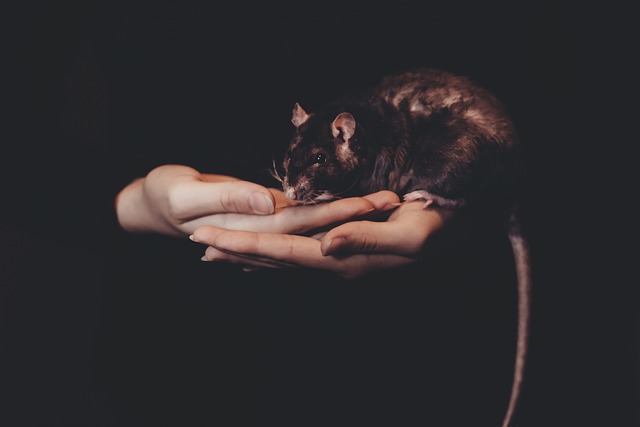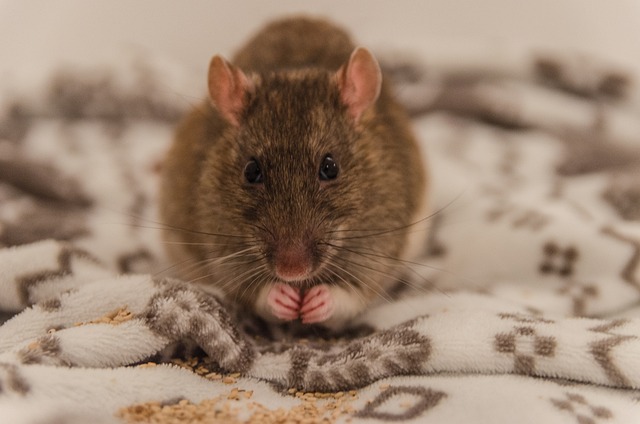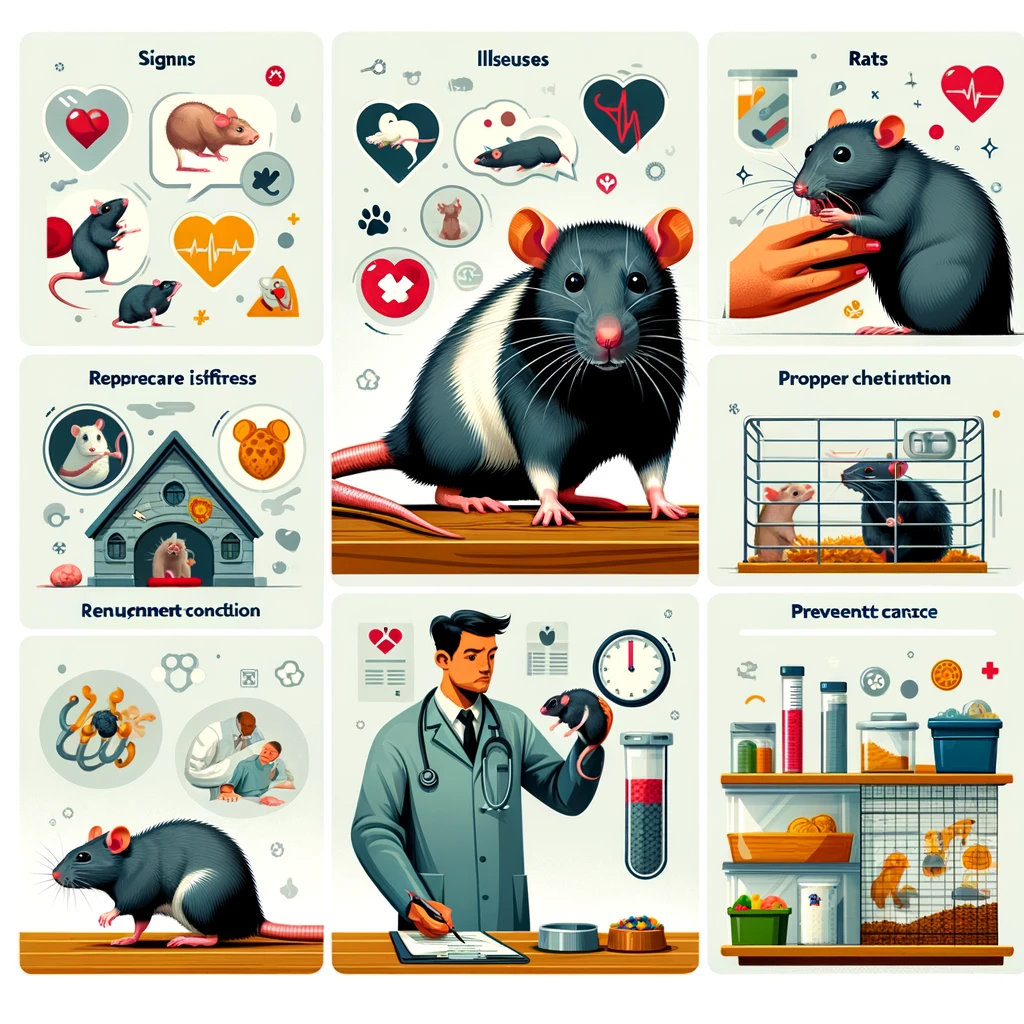Understanding Common Health Concerns in Pet Rats: A Comprehensive Guide
Pet rats are intelligent, social, and affectionate companions, but like any other living creature, they are susceptible to various health issues. As responsible rat owners, it’s essential to be aware of these common health concerns to ensure the well-being of our furry friends. In this comprehensive guide, we’ll delve into the most prevalent health problems that affect pet rats and how to recognize, prevent, and treat them.
1. Respiratory Infections:
Respiratory infections are one of the most common health issues in pet rats. Symptoms may include sneezing, wheezing, labored breathing, and nasal discharge. These infections can be caused by bacteria, viruses, or environmental factors such as poor ventilation or exposure to drafts. To prevent respiratory problems, maintain a clean and well-ventilated living environment for your rats, avoid exposure to cigarette smoke and strong fumes, and promptly address any signs of illness by consulting a veterinarian. Treatment typically involves antibiotics and supportive care.
2. Tumors:
Tumors, both benign and malignant, are frequently seen in pet rats, particularly as they age. Mammary tumors are common in female rats, while males may develop testicular tumors. These growths can be detected as lumps under the skin or in the abdomen. While not all tumors are preventable, providing a balanced diet, regular exercise, and a stress-free environment can contribute to overall health and potentially reduce the risk of tumor development. Treatment options may include surgical removal, chemotherapy, or palliative care, depending on the type and severity of the tumor.
3. Dental Issues:
Rats have continually growing incisors and molars, making them prone to dental problems if their teeth become overgrown or misaligned. Signs of dental issues in rats include drooling, difficulty eating, weight loss, and visible abnormalities in the teeth. To prevent dental problems, provide your rats with chew toys, wooden blocks, and a diet that includes hard foods to help wear down their teeth naturally. Regular veterinary check-ups can also help detect and address dental issues early on. Treatment may involve trimming the teeth under anesthesia or managing underlying causes such as malocclusion or injury.
4. Parasitic Infestations:
External parasites such as mites and lice can infest pet rats, causing itching, hair loss, and skin irritation. Additionally, internal parasites like worms can affect their gastrointestinal tract, leading to symptoms such as diarrhea, weight loss, and lethargy. Preventive measures include maintaining good hygiene in the rat’s living environment, providing clean bedding, and avoiding contact with other animals known to carry parasites. If infestations occur, treatment typically involves topical or oral medications prescribed by a veterinarian.
5. Obesity and Diet-Related Issues:
Overfeeding and a lack of exercise can lead to obesity in pet rats, which predisposes them to various health problems such as heart disease, diabetes, and joint issues. To prevent obesity, provide a balanced diet consisting of fresh fruits, vegetables, high-quality rat pellets, and occasional treats in moderation. Encourage physical activity by providing ample opportunities for exercise, such as climbing structures, tunnels, and toys. Regularly monitor your rat’s weight and adjust their diet and activity levels accordingly to maintain a healthy body condition.
In conclusion, being proactive in monitoring your pet rat’s health and addressing any concerns promptly is crucial for ensuring a long and happy life. By familiarizing yourself with the common health issues discussed in this guide and implementing preventive measures, you can help your furry companions thrive and enjoy their company for years to come. Remember, if you ever notice any signs of illness or discomfort in your pet rat, don’t hesitate to seek veterinary care for proper diagnosis and treatment.

Top Health Issues Affecting Pet Rats: Symptoms and Solutions
Pet rats are cherished companions known for their intelligence, affectionate nature, and playful demeanor. However, like all animals, rats are susceptible to various health issues that can impact their well-being. As responsible rat owners, it’s crucial to be aware of the top health concerns affecting pet rats, recognize their symptoms, and know how to address them effectively. In this article, we’ll explore some of the most common health issues that pet rats may encounter, along with their symptoms and potential solutions.
1. Respiratory Infections:
Respiratory infections are among the most prevalent health issues in pet rats. Symptoms include sneezing, wheezing, labored breathing, nasal discharge, and lethargy. These infections can be caused by bacteria, viruses, or environmental factors such as poor ventilation or exposure to drafts. To address respiratory infections, it’s essential to consult a veterinarian promptly. Treatment typically involves antibiotics to combat the underlying infection, along with supportive care to alleviate symptoms. Additionally, maintaining a clean and well-ventilated living environment for your rats can help prevent respiratory problems from occurring.
2. Tumors:
Tumors, both benign and malignant, are frequently seen in pet rats, particularly as they age. Mammary tumors are common in female rats, while males may develop testicular tumors. Symptoms may include visible lumps or masses under the skin or in the abdomen. Treatment for tumors often involves surgical removal, although the approach may vary depending on the type and location of the tumor. In some cases, chemotherapy or palliative care may be recommended. While not all tumors are preventable, providing a balanced diet, regular exercise, and a stress-free environment can contribute to overall health and potentially reduce the risk of tumor development.
3. Dental Issues:
Dental problems are a significant concern for pet rats due to their continually growing incisors and molars. Signs of dental issues may include drooling, difficulty eating, weight loss, and visible abnormalities in the teeth. To prevent dental problems, provide your rats with chew toys, wooden blocks, and a diet that includes hard foods to help wear down their teeth naturally. Regular veterinary check-ups are crucial for early detection and treatment of dental issues. Treatment may involve trimming the teeth under anesthesia or addressing underlying causes such as malocclusion or injury.
4. Parasitic Infestations:
External parasites such as mites and lice can infest pet rats, causing itching, hair loss, and skin irritation. Additionally, internal parasites like worms can affect their gastrointestinal tract, leading to symptoms such as diarrhea, weight loss, and lethargy. Preventive measures include maintaining good hygiene in the rat’s living environment, providing clean bedding, and avoiding contact with other animals known to carry parasites. If infestations occur, treatment typically involves topical or oral medications prescribed by a veterinarian.
5. Obesity and Diet-Related Issues:
Overfeeding and a lack of exercise can lead to obesity in pet rats, predisposing them to various health problems such as heart disease, diabetes, and joint issues. To prevent obesity, provide a balanced diet consisting of fresh fruits, vegetables, high-quality rat pellets, and occasional treats in moderation. Encourage physical activity by providing ample opportunities for exercise, such as climbing structures, tunnels, and toys. Regularly monitor your rat’s weight and adjust their diet and activity levels accordingly to maintain a healthy body condition.
In conclusion, being informed about the top health issues affecting pet rats and their respective symptoms and solutions is essential for providing optimal care to these beloved pets. By recognizing early warning signs, seeking veterinary attention promptly, and implementing preventive measures, rat owners can help ensure their furry companions lead healthy and fulfilling lives. Remember, proactive care and regular veterinary check-ups are key to keeping pet rats happy and thriving for years to come.
Preventing Health Problems in Pet Rats: Essential Tips for Owners
Preventing health problems in pet rats is key to ensuring they lead happy and healthy lives. As responsible rat owners, there are several essential tips to keep in mind to minimize the risk of common health issues and maintain your furry companions’ well-being. In this section, we’ll discuss practical strategies and preventative measures you can implement to safeguard your pet rats’ health.
1. Maintain a Clean Living Environment:
Regularly clean and sanitize your rat’s cage to prevent the buildup of bacteria, parasites, and harmful pathogens. Use pet-safe cleaning products and replace bedding frequently to keep the environment fresh and hygienic. Pay special attention to areas where waste accumulates, such as litter boxes and food/water dishes, and clean them daily.
2. Provide a Balanced Diet:
Offer a nutritionally balanced diet consisting of high-quality rat pellets as the main staple, supplemented with fresh fruits, vegetables, and occasional protein sources such as cooked eggs or lean meats. Avoid feeding sugary or fatty foods and limit treats to prevent obesity and diet-related health issues. Ensure access to clean, fresh water at all times.
3. Encourage Regular Exercise:
Create an enriching environment for your pet rats by providing ample opportunities for physical activity and mental stimulation. Include climbing structures, tunnels, ropes, and toys in their cage to encourage exploration and exercise. Allow supervised out-of-cage playtime in a safe, rat-proofed area to promote natural behaviors and prevent boredom.
4. Monitor Weight and Body Condition:
Regularly monitor your rat’s weight and body condition to ensure they maintain a healthy physique. Use a kitchen scale or consult with your veterinarian for accurate weight measurements. Adjust their diet and activity levels accordingly if you notice any signs of weight gain or loss to prevent obesity or malnutrition.
5. Schedule Routine Veterinary Check-ups:
Establish a relationship with a veterinarian experienced in treating small animals, including rats, and schedule routine wellness exams for your pets. Regular veterinary check-ups allow for early detection of potential health problems and ensure timely interventions. Discuss any concerns or changes in behavior with your vet and follow their recommendations for preventive care, vaccinations, and parasite control.
6. Practice Good Hygiene and Handling:
Wash your hands thoroughly before and after handling your pet rats to prevent the spread of germs and reduce the risk of zoonotic diseases. Teach children and other household members proper handling techniques and supervise interactions with the rats to prevent accidental injuries and stress.
By implementing these essential tips for preventing health problems in pet rats, you can proactively safeguard your furry companions’ well-being and enjoy a rewarding and fulfilling relationship with them for years to come. Remember that responsible pet ownership involves commitment, diligence, and a genuine concern for your rats’ welfare. If you ever have questions or concerns about your pet rat’s health, don’t hesitate to seek guidance from a qualified veterinarian.
A Closer Look at the Most Frequent Health Challenges Faced by Pet Rats
Pet rats, with their playful demeanor and endearing personalities, have become increasingly popular as companions in households around the world. However, like any other pets, rats are susceptible to various health challenges that can affect their well-being. Understanding these common health issues is crucial for proactive care and ensuring a long and healthy life for your furry friends. In this article, we’ll take a closer look at some of the most frequent health challenges faced by pet rats and how to recognize, prevent, and address them.
1. Respiratory Infections:
Respiratory infections are perhaps the most prevalent health concern among pet rats. These infections can be bacterial, viral, or fungal in nature and are often characterized by symptoms such as sneezing, wheezing, nasal discharge, and labored breathing. Factors such as poor ventilation, drafts, and exposure to cigarette smoke or other irritants can predispose rats to respiratory issues. To prevent respiratory infections, maintain a clean and well-ventilated living environment for your rats, provide proper bedding, and avoid exposure to potential respiratory irritants. Prompt veterinary attention is essential if symptoms arise, as respiratory infections can quickly become severe if left untreated.
2. Tumors:
Tumors, both benign and malignant, are common in pet rats, particularly as they age. Mammary tumors are frequently seen in female rats, while males may develop testicular tumors. These growths can be detected as lumps under the skin or in the abdomen. While not all tumors are preventable, providing a balanced diet, regular exercise, and a stress-free environment can contribute to overall health and potentially reduce the risk of tumor development. Early detection through regular physical examinations is key to managing tumors effectively, and surgical removal may be necessary in some cases.
3. Dental Issues:
Rats have continuously growing incisors and molars, making them prone to dental problems if their teeth become overgrown or misaligned. Signs of dental issues in rats include drooling, difficulty eating, weight loss, and visible abnormalities in the teeth. To prevent dental problems, provide your rats with chew toys, wooden blocks, and a diet that includes hard foods to help wear down their teeth naturally. Regular veterinary check-ups can also help detect and address dental issues early on, and treatment may involve trimming the teeth under anesthesia or managing underlying causes such as malocclusion or injury.
4. Parasitic Infestations:
External parasites such as mites and lice can infest pet rats, causing itching, hair loss, and skin irritation. Additionally, internal parasites like worms can affect their gastrointestinal tract, leading to symptoms such as diarrhea, weight loss, and lethargy. Preventive measures include maintaining good hygiene in the rat’s living environment, providing clean bedding, and avoiding contact with other animals known to carry parasites. If infestations occur, treatment typically involves topical or oral medications prescribed by a veterinarian.
5. Obesity and Diet-Related Issues:
Overfeeding and a lack of exercise can lead to obesity in pet rats, which predisposes them to various health problems such as heart disease, diabetes, and joint issues. To prevent obesity, provide a balanced diet consisting of fresh fruits, vegetables, high-quality rat pellets, and occasional treats in moderation. Encourage physical activity by providing ample opportunities for exercise, such as climbing structures, tunnels, and toys. Regularly monitor your rat’s weight and adjust their diet and activity levels accordingly to maintain a healthy body condition.
In conclusion, being aware of the most frequent health challenges faced by pet rats is essential for responsible rat ownership. By understanding these common issues, implementing preventive measures, and seeking prompt veterinary care when needed, you can ensure a high quality of life for your furry companions and enjoy a rewarding bond with them for years to come. Remember, your veterinarian is your ally in promoting the health and well-being of your pet rats, so don’t hesitate to seek their guidance and expertise whenever necessary.
Proactive Care: Strategies to Keep Your Pet Rats Healthy and Happy

As beloved companions, pet rats deserve the best possible care to ensure they lead fulfilling lives full of vitality and joy. Proactive care is essential in maintaining the health and happiness of these intelligent and social creatures. In this article, we’ll explore proactive strategies that rat owners can implement to promote the well-being of their furry friends and strengthen the bond between human and rat.
1. Enriching Environment:
Creating an enriching environment is crucial for the mental and physical well-being of pet rats. Provide a spacious cage with multiple levels, tunnels, hammocks, and hiding spots to encourage exploration and stimulate natural behaviors. Rotate toys regularly to prevent boredom, and consider adding puzzle feeders or foraging toys to challenge your rats mentally and keep them engaged.
2. Balanced Diet:
A balanced diet is fundamental to your pet rat’s health. Offer a variety of fresh fruits, vegetables, and high-quality rat pellets as the main components of their diet. Ensure adequate protein intake through sources such as lean meats, cooked eggs, and insects. Avoid feeding sugary or fatty foods, as well as toxic items such as chocolate, caffeine, and avocado. Provide clean, fresh water daily and monitor your rat’s eating habits to detect any changes that may indicate health issues.
3. Regular Exercise:
Encouraging regular exercise is essential for maintaining your pet rat’s physical health and preventing obesity. Provide opportunities for climbing, running, and exploring both inside and outside of the cage. Set up playtime sessions in a safe, rat-proofed area where your rats can stretch their legs and engage in natural behaviors. Supervise interactions with other pets or household members to ensure safety and minimize stress.
4. Mental Stimulation:
Stimulating your pet rat’s mind is just as important as physical exercise. Incorporate activities that challenge their problem-solving skills and encourage social interaction. Hide treats around their cage for them to find, teach them tricks using positive reinforcement training, or introduce new toys and games to keep their minds sharp and engaged.
5. Regular Veterinary Care:
Regular veterinary check-ups are essential for monitoring your pet rat’s health and detecting any potential issues early on. Find a veterinarian experienced in treating small animals, including rats, and schedule routine wellness exams at least once a year. During these visits, your vet can assess your rat’s overall health, provide preventive care such as vaccinations and parasite control, and offer advice on diet, housing, and behavior.
6. Bonding and Socialization:
Building a strong bond with your pet rat is beneficial for both parties and contributes to their overall well-being. Spend quality time interacting with your rats through gentle handling, grooming, and play. Respect their individual personalities and preferences, and allow them to approach you on their terms. Introduce new rats to each other gradually and monitor their interactions to ensure they get along well and feel secure in their social group.
In conclusion, proactive care is essential for keeping pet rats healthy, happy, and thriving. By providing an enriching environment, a balanced diet, regular exercise, mental stimulation, veterinary care, and opportunities for bonding and socialization, you can ensure that your furry companions live their best lives alongside you. Remember that each rat is unique, so tailor your care approach to suit their individual needs and preferences. With proactive care and love, you can enjoy a fulfilling and rewarding relationship with your pet rats for years to come.




